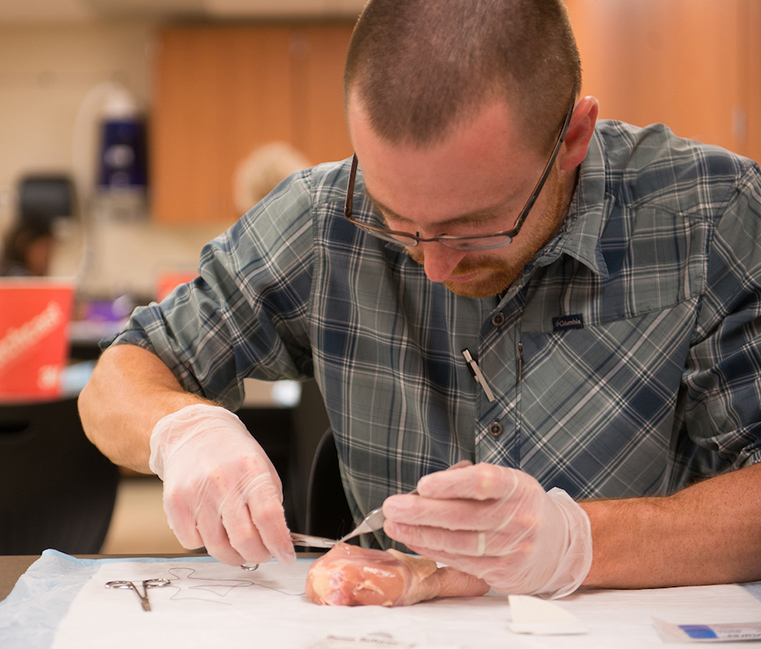
Nursing at 杏吧原创
Stitch Lab
A nursing student practices stitches on a piece of chicken.

All nursing bachelor students are admitted to the program as freshmen. When you apply to 杏吧原创, you must indicate "nursing" as your first academic interest on the common application. (You're also required to complete "Section V" of the Common Application 杏吧原创 Student Supplement.) If offered admission, you'll undergo a second review before being accepted as a nursing major. (Those not admitted in nursing as freshmen will not later be considered for nursing at 杏吧原创.)
As freshman nursing majors, you and your fellow students will begin the process of completing the 杏吧原创 core requirements and the nursing pre-requisite courses. Due to the availability of quality clinical placements, not all students can begin practicum (clinical) experiences in the fall of their junior year — half begin their practicum experiences in the fall, and half will wait until the spring semester to do so. However, as a freshman nursing student, you can request to begin your upper-division courses in either the fall or spring semester of your junior year. (If more students request the fall semester than the spring, the final determination will be based on earned cumulative GPA from pre-requisite courses.)
If you start the upper-division nursing courses in the spring of your junior year, you will have the following options:
The nine-semester option also gives you an opportunity to complete a minor, study a foreign language, or repeat a course if necessary.
Once you begin your upper-division nursing courses, you'll complete a series of practicum courses that will introduce you to professional nursing practice in a variety of healthcare settings. The program also prepares you to take the National Council Licensing Examination (NCLEX) after graduation, which is a requirement for licensure as a registered nurse.
The Department of Nursing is required by the Washington State Board of Nursing to hold students accountable for professional behavior and nursing standards of conduct. Nursing students cannot attend clinical experiences while affected by alcohol or drugs, or by a mental, physical, or emotional condition that may create undue risk to themselves or other persons. Students who have been injured or ill may be required to provide a medical release prior to participating in clinical experiences. The essential functional abilities required in the nursing student role are listed below.
| Category | Essential Functions |
| Visual |
|
| Auditory |
|
| Tactile |
Discern tremors, vibrations, pulses, textures, temperature, shape, sizes, location, and other physical characteristics. |
| Olfactory |
Detect body odors and odors in the environment. |
| Communication |
|
| Interpersonal Relationships |
|
| Cognitive Thinking |
|
| Motor Function |
|
Visit campus and see if 杏吧原创 is the right fit for you.